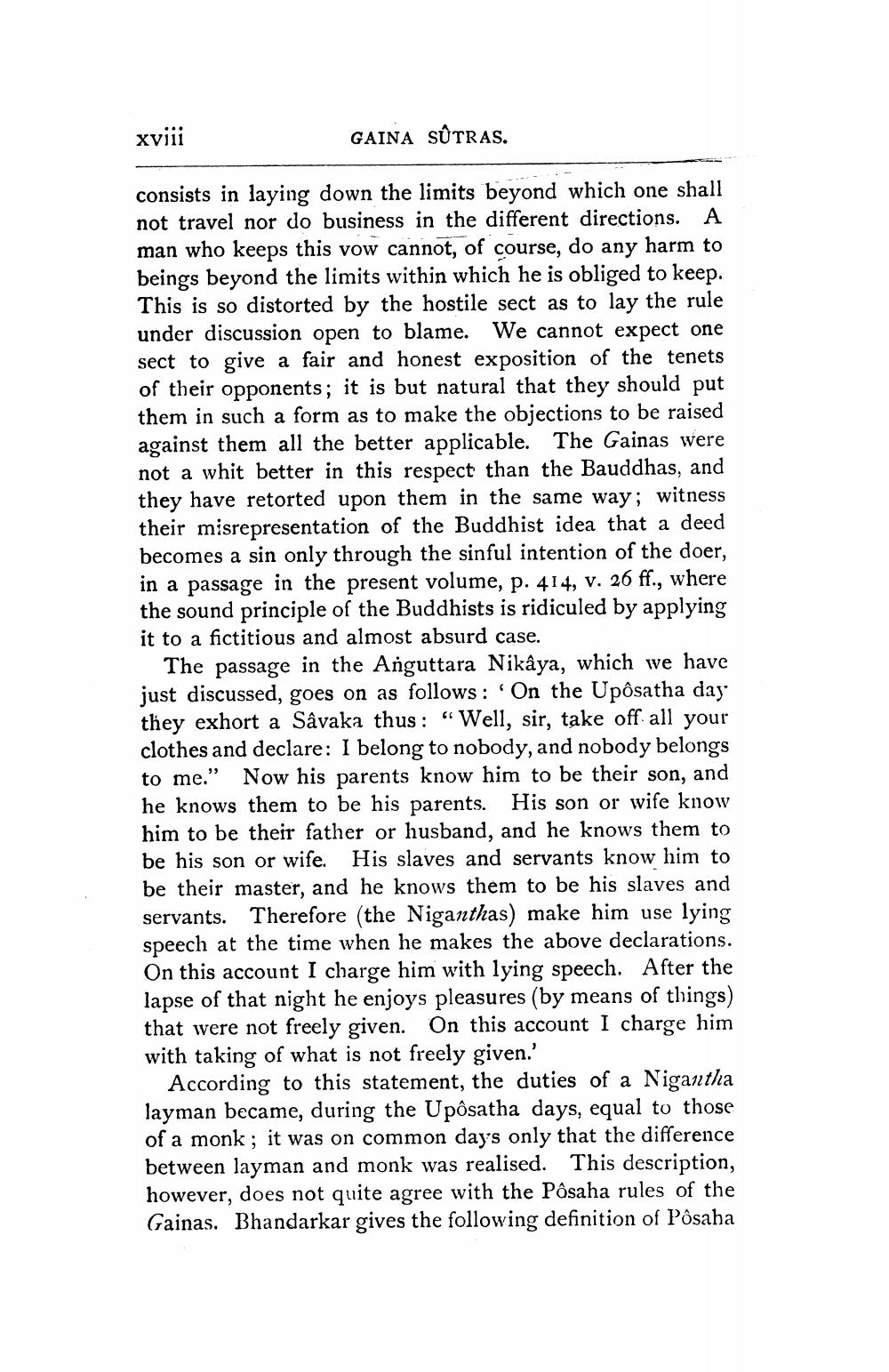________________
xviii
GAINA SUTRAS.
A
consists in laying down the limits beyond which one shall not travel nor do business in the different directions. man who keeps this vow cannot, of course, do any harm to beings beyond the limits within which he is obliged to keep. This is so distorted by the hostile sect as to lay the rule under discussion open to blame. We cannot expect one sect to give a fair and honest exposition of the tenets of their opponents; it is but natural that they should put them in such a form as to make the objections to be raised against them all the better applicable. The Gainas were not a whit better in this respect than the Bauddhas, and they have retorted upon them in the same way; witness their misrepresentation of the Buddhist idea that a deed becomes a sin only through the sinful intention of the doer, in a passage in the present volume, p. 414, v. 26 ff., where the sound principle of the Buddhists is ridiculed by applying it to a fictitious and almost absurd case.
The passage in the Anguttara Nikâya, which we have just discussed, goes on as follows: On the Upôsatha day they exhort a Sâvaka thus: "Well, sir, take off all your clothes and declare: I belong to nobody, and nobody belongs to me." Now his parents know him to be their son, and he knows them to be his parents. His son or wife know him to be their father or husband, and he knows them to be his son or wife. His slaves and servants know him to be their master, and he knows them to be his slaves and servants. Therefore (the Niganthas) make him use lying speech at the time when he makes the above declarations. On this account I charge him with lying speech. After the lapse of that night he enjoys pleasures (by means of things) that were not freely given. On this account I charge him with taking of what is not freely given.'
According to this statement, the duties of a Nigantha layman became, during the Upôsatha days, equal to those of a monk; it was on common days only that the difference between layman and monk was realised. This description, however, does not quite agree with the Pôsaha rules of the Gainas. Bhandarkar gives the following definition of Pôsaha




